The best healthcare employee training should do more than identify your employees’ strengths and target their weak areas. It should diagnose and treat unconscious incompetence — what healthcare employees don’t know they don’t know.
How Adaptive Learning Optimizes Healthcare Employee Training
Topics: Healthcare Training
Train End Users on Pharmaceutical Products for Better Patient Outcomes
How confident are you that your end users are choosing the appropriate treatments for their patients as knowledgeably and as responsibly as they can? If your answer is anywhere along the spectrum of “I’m not sure” to “I’m reasonably confident,” then there’s work to be done.
Topics: Healthcare Training
Simulation training is indispensable in healthcare because it’s a safe space for learning: there are no life-or-death consequences attached to mistakes in the world of simulated medical emergencies. But simulation training by itself isn’t adequate to keep employees up-to-date in their medical knowledge and skills — you need additional learning tools and an effective training program to optimize your training impact and meet the evolving needs of training for healthcare systems today.
Topics: Healthcare Training
Should pharmaceutical companies care about external training, i.e., training physician end users to use their products effectively and safely while optimizing patient care? The answer is obvious: of course they should. Effective external training means better use of your products and more optimal patient care — and better business outcomes for your company.
Topics: Healthcare Training
These Healthcare Companies Are Excelling With Adaptive Learning
Healthcare professionals in the NEJM Group, AACC and Coloplast, among others, turned to Adaptive Learning to optimize their training impact.
Topics: Healthcare Training
The Importance of Proficiency and Mastery for Medical Training
Imagine this hypothetical situation: if you had to choose between two heart surgeons, both of whom had passed their Board exams, but one had achieved the minimum passing score and the other had scored 99%, which one would you choose?
Topics: Healthcare Training
Healthcare professionals all have the same goals: do what’s best for the patient and optimize patient care. But globally, iatrogenesis — the unintended adverse effects of medical intervention on patients — is a problem. So how do healthcare professionals produce better outcomes — and reduce iatrogenic effects — across the board?
Topics: Healthcare Training
Is Microlearning for Healthcare Your Best Training Option?
Microlearning is an e-learning approach that breaks lessons into smaller chunks in order to make the training feel more manageable. Because of this, microlearning may seem like an attractive choice for an e-learning training solution for healthcare staff working under time pressure.
Topics: Healthcare Training
Area9 Lyceum Recognized in New Adaptive Learning Survey Study from Researchers at Leading Health Organizations
Researchers and physicians at the Massachusetts General Hospital, Harvard Medical School, Brigham and Women's Hospital, and NEJM Group conducted a survey study to determine user experiences with an adaptive learning platform and the impact on first-time American Board of Internal Medicine Certifying Examination (ABIM-CE) test takers. The study was published in AMEE MedEd Publish, an open access online journal for medical and health-care professionals.
The survey study examines the NEJM Knowledge+ adaptive learning platform, which we co-developed with NEJM Group, and found that the majority of respondents rated the platform as helpful and the content as good or excellent for exam preparation and relevant to their learning needs. The study also found that a significantly higher proportion of users reported passing the ABIM-CE on their first attempt compared to the national average (95 percent vs. 89 percent).
Topics: News & PR, Adaptive Learning, Healthcare Training
Unconscious incompetence is when you don’t know that you don’t know. You think you are doing one aspect of your job correctly when you actually aren’t. Our data shows that employees can be 15-40% unconsciously incompetent in critical aspects of their job. It’s a problem that hits every industry and affects efficiency and productivity everywhere. But in certain sectors, unconscious incompetence can be even more harmful — healthcare is one of these.
Topics: Healthcare Training
The point of medical training is to identify and close skill or professional practice gaps. And because of new technological developments or new research, there’s always a skill gap. Those skill gaps are the difference between what a clinician is doing versus what they should be doing. But there are easy solutions.
Topics: Healthcare Training
Every workday in healthcare is unpredictable. There never seems to be enough time in the day and every moment needs to be used as efficiently as possible. With days already filled to bursting, it seems like there’s no time for training.
Topics: Healthcare Training






